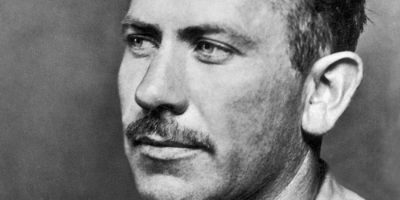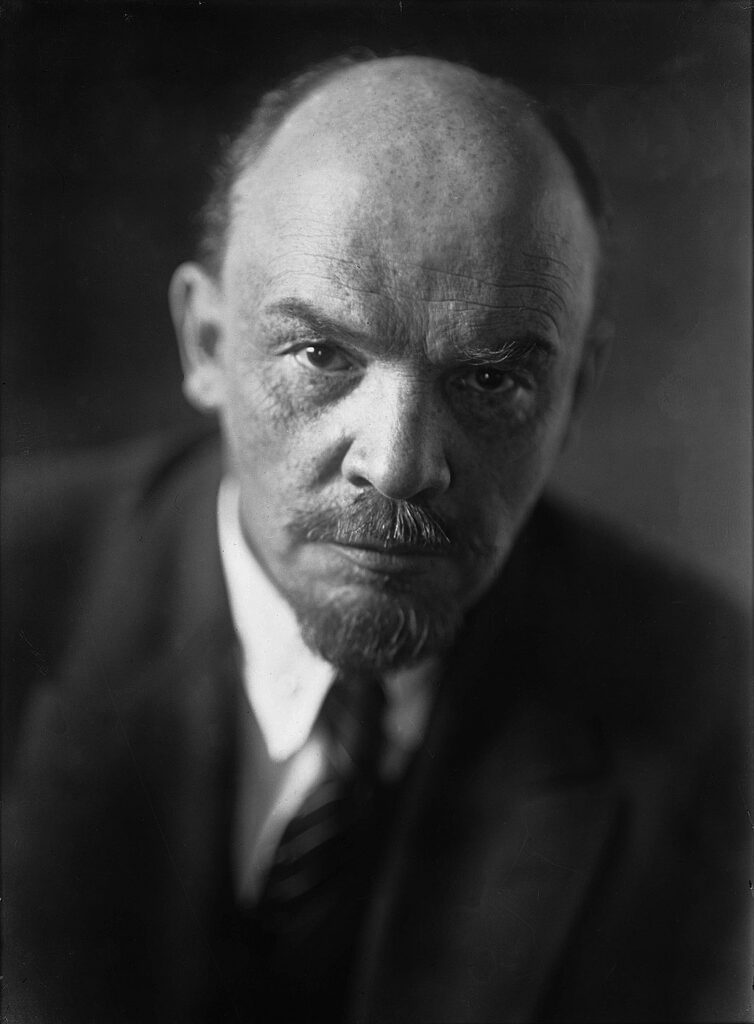
Vladimir Lenin. Author Pavel Zhukov (1870–1942). Wikimedia Commons
20 Most Significant Figures of World War I
The First World War destroyed empires, created numerous new nation-states, encouraged independence movements in Europe’s colonies, forced the United States to become a world power, and led directly to Soviet communism and the rise of Hitler. World War 1 lasted just over four years and included many belligerent nations. Consequently, there are a lot of famous names involved. Here are the 20 Most Significant Figures of World War I.
1. Prime Minister Herbert Asquith
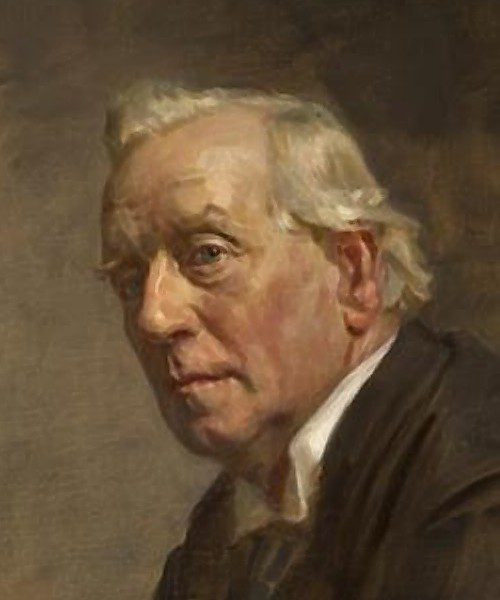
Herbert Asquith. Unknown Author. Wikimedia Commons
Herbert Asquith came to the limelight in 1886 when he was elected as the Liberal MP for East Fife, despite the limitations of being a young widower with 5 children after the death of his wife. Initially, he was seen as a strong believer in free trade, Home Rule for Ireland, and social reform, which were all vital issues of the day.
Later he was to be elected Prime Minister of Britain in 1908. During his reign, he was best remembered for the role he played in the design and passage of major liberal legislation and a reduction of the power of the House of Lords. In August 1914, he also led Great Britain and the British Empire into the First World War. Unfortunately for him, they did not deliver as expected. This was due to the fact that he had underestimated the scale of the July crisis and relied on the judgment of colleagues who had supported the Boer war. This turned out to be very costly to the country. Thereafter, he struggled to unite his government, and after the disasters of the Somme and a rising in Ireland was overthrown.
Find more interesting stories here
2. Chancellor Bethmann Hollweg
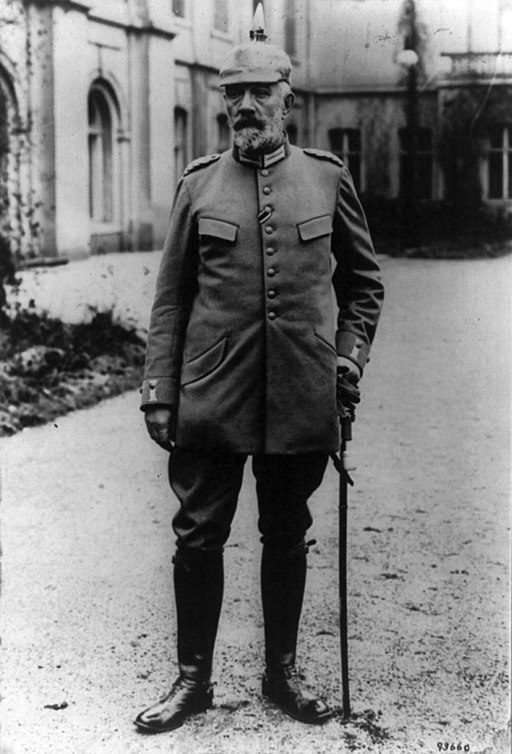
Bethmann Hollweg.Author Unknown author. Wikimedia Commons
Bethmann was a career civil servant who became Imperial Germany’s fifth Reich Chancellor from 1909 until the start of the war. Despite heading the imperial German political administration, his power was circumscribed by the role of Kaiser Wilhelm II and the army leadership. He was forced to resign in 1917.
The disgraced leader is most famous as the Chancellor of Germany at the start of World War One. During the war, he stood out as the leader who sanctioned the use of unrestricted submarine warfare that led to the entry of America into World War One.
3. General Aleksey Brusilov

Aleksey Brusilov. Unknown Author. Wikimedia Commons
The most talented and successful Russian commander of the First World War, Brusilov started the conflict in charge of the Russian Eighth Army, where he contributed significantly to success in Galicia in 1914. By 1916 he had stood out enough to be put in charge of the southwest Eastern Front, and the Brusilov offensive of 1916 was hugely successful by the standards of the conflict, capturing hundreds of thousands of prisoners, taking territory, and distracting the Germans from Verdun at a key moment.
His offensive strategy helped to relieve pressure on French forces at Verdun, and the Austro-Hungarian pressure on the Italians. It inflicted irreparable losses on the Austro-Hungarian Army and induced Romania to finally enter the war on the side of the Entente.
4. Winston Churchill

Sir Winston ChurchillAuthor United Nations Information Office, New York. Wikimedia Commons
Before that war started, he was serving as First Lord of the Admiralty. In 1915 he helped orchestrate the disastrous Dardanelles naval campaign and was also involved in the planning of the military landings. Unfortunately, both were unsuccessful due to the critical mistakes that he made, leading to him losing his job as Prime Minister. He had overseen the movement of the BEF perfectly, but his interventions, appointments, and actions made him enemies and undermined his previous reputation for successful dynamism.
On the other hand, the charismatic Churchill made planning and decision-making – both political and military – simpler and more efficient. His force of personality was instrumental in cementing the ‘Big Three’ Alliance with Britain’s powerful allies, Russia and the United States.
Read more exciting stories here
5. Prime Minister Georges Clemenceau
He is best remembered as the Prime Minister of France during World War One and being one of the key shapers of the peace treaties after the war, including the Treaty of Versailles, in which he favored harsh punishment for Germany.
Prior to the war, Clemenceau had established a formidable reputation thanks to his radicalism, his politics, and his journalism. When war broke out, he resisted offers to join the government and used his position to attack any faults he saw in the army, and he saw many.
By 1917, with the French war effort failing, the country turned to Clemenceau to halt the slide. Known for his strong leadership qualities, he successfully drove France through total war.
6. General Erich von Falkenhayn
Falkenhayn was Prussian minister of War and Chief of Staff (1914-1916) and He was one of the decision-makers during the July crisis of 1914 and responsible for the German strategy in the first half of the war. His strategy was successful in 1915 but failed in 1916 (Verdun).
In 1916 he was in charge at Verdun, where the Germans suffered heavy loss. He was further weakened and replaced by Hindenburg and Ludendorff. He then took command of an army and defeated Romania, but failed to repeat the success in Palestine and Lithuania.
7. Archduke Franz Ferdinand

Archduke Franz Ferdinand. Author Ferdinand Schmutzer (1870–1928). Wikimedia Commons
It is believed that the assassination of Archduke Franz Ferdinand, the heir to the Habsburg throne, is what triggered the beginning of the First World War, even though there had been rising tensions in Europe prior. Because of his policies and authoritarian leadership, Ferdinand wasn’t well-liked in Austria-Hungary, but he acted as a check on Austrian actions immediately before the war, moderating response and helping to avoid conflict. While in power, he attempted to restore Austro-Russian relations while maintaining an alliance with Germany. In 1914, a Serb nationalist assassinated him.
Read more here
8. Field Marshal Sir John French

Field Marshal Sir John French. Author IWM Collections. Wikimedia Commons
Field Marshal Sir John French was a cavalry commander who made his name in Britain’s colonial wars and was the first commander of the British Expeditionary Force during the war. A war veteran even before World War I, he believed that the BEF was at risk of being wiped out. He thought that he was the only person who was capable of reversing the situation. He was also suspicious of the French and had to be persuaded by a personal visit from Kitchener to keep the BEF fighting. As those above and below him grew frustrated, the French were seen to fail significantly in the battles of 1915. He was eventually relieved of his duties and replaced by Haig at the end of the year.
9. Marshal Ferdinand Foch
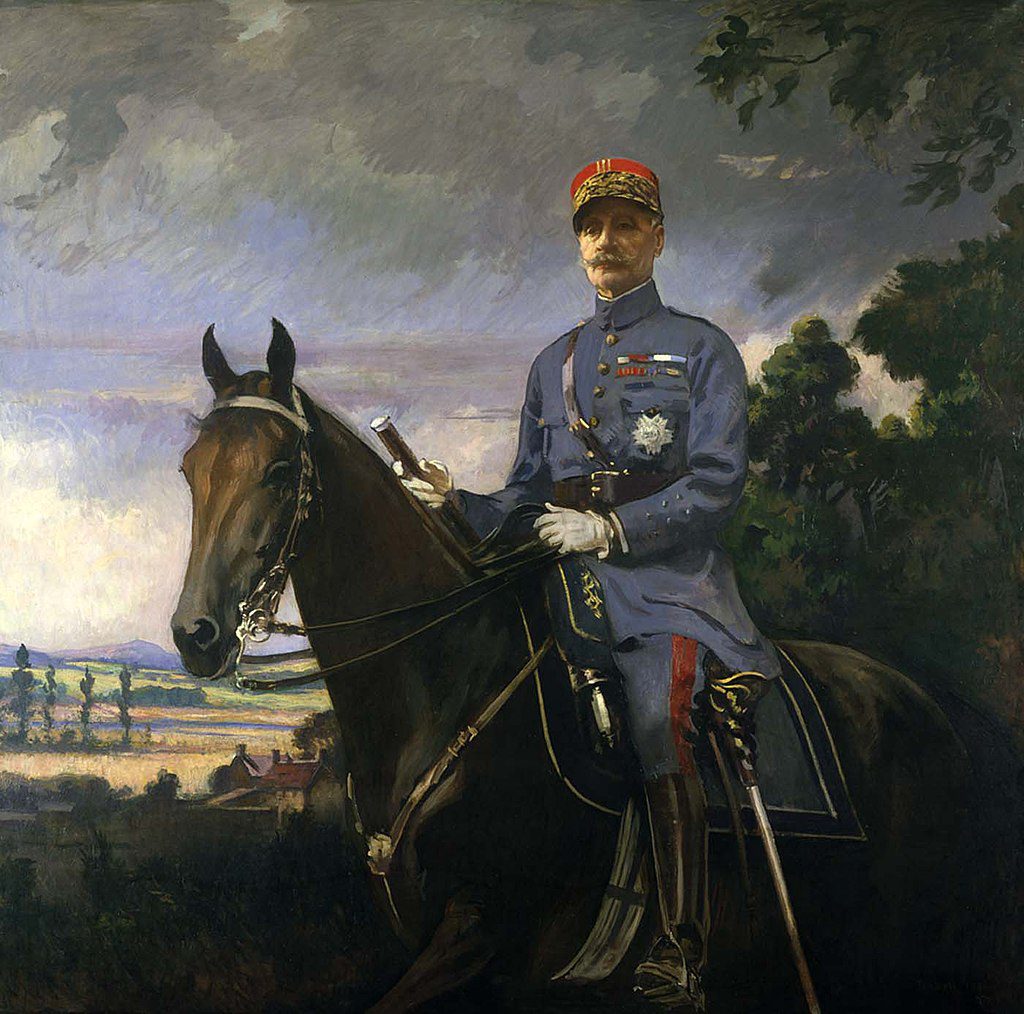
Marshal Ferdinand Foch. Unknown Author. Wikimedia Commons
Ferdinand Foch was a key French military commander during World War I. He had joined the infantry during the Franco-Prussian War, rising to become head of the war college.
At the start of the war, he was given troops to command but made his name in collaborating and coordinating with other allied commanders. When Joffre fell, he was sidelined, but made a similar impression working in Italy, and won over allied leaders enough to become the Allied Supreme Commander on the Western Front, where his sheer personality and guile helped him maintain success for just about long enough.
10. Emperor Franz Josef Habsburg I
Habsburg Emperor Franz Josef I ruled for slightly over 68 years. His reign was described as a peaceful one with the objective of keeping an increasingly fractious empire together. Initially, he did not want to participate in the war as he felt that it would destabilize the nation. However, in 1914 he appeared to have changed his mind after the assassination of his heir Franz Ferdinand. With that came the pressures of holding the empire intact due to the rising tensions. Therefore, he signed the declaration of war on Serbia which triggered the First World War.
11. Sir Douglas Haig

Sir Douglas Haig. Unknown Author. Wikimedia Commons
A former cavalry commander, Haig worked as Commander of the British 1st Army in 1915. Because of his political connections, he led a coup against the then-leader, the French, and named himself the BEF’s commander at the end of the year. For the remainder of the war, he led the British army, mixing faith that a breakthrough could be achieved on the Western Front with a total imperturbability at the human cost, which he believed was inevitable in modern war. He was certain victory should be actively pursued, or else the war would last decades, and in 1918 his policy of wearing the Germans down and developments in supply and tactics meant he oversaw victories. He is remembered for sacrificing millions of lives for the sake of victory.
12. Field Marshal Paul von Hindenburg
Hindenburg was called out of retirement in 1914 to command the Eastern Front in tandem with the formidable talents of Ludendorff. A national hero for his early victories, Hindenburg later drew the United States into battle with his use of submarine warfare. Despite the failure of Germany in the war, he remained hugely popular and would go on to become the President of Germany who appointed Hitler.
13. Conrad von Hötzendorf

Conrad von Hötzendorf. Author Hermann Torggler (1878-1939). Wikimedia Commons
The head of the Austro-Hungarian army, Conrad is perhaps the individual most responsible for the outbreak of World War One. Before 1914 he had called for war perhaps over fifty times, and he believed strong action against rival powers was needed to maintain the empire’s integrity. A controversial military strategist and one of the most influential conservative propagandists of Austria-Hungary, he overestimated what the Austrian army could achieve, and put in place imaginative plans with little regard for reality. He also started the war by having to divide his forces, thus making little impact on either zone and continuing to fail. He was replaced in February 1917.
Read more here
14. Marshal Joseph Joffre

Marshal Joseph Joffre. Author R.Melcy, photograph. Jebulon for scan. Wikimedia Commons
Unlike his predecessors, his military tactics were awesome and are known to have shaped the way France would respond to war. Joffre believed in a strong offense, which involved promoting aggressive officers and pursuing Plan XVIII: an invasion of Alsace-Lorraine. He advocated full and fast mobilization during the July Crisis of 1914 but found his preconceptions shattered by the reality of war. Almost at the last minute, he changed plans to stop Germany just short of Paris, and his calmness and unflustered nature contributed to this victory.
However, over the next year, a succession of critics eroded his reputation, and he fell open to a massive attack when his plans for Verdun were seen to have created that crisis. In December 1916 he was removed from command, made a Marshal, and reduced to performing ceremonies.
15. Mustafa Kemal
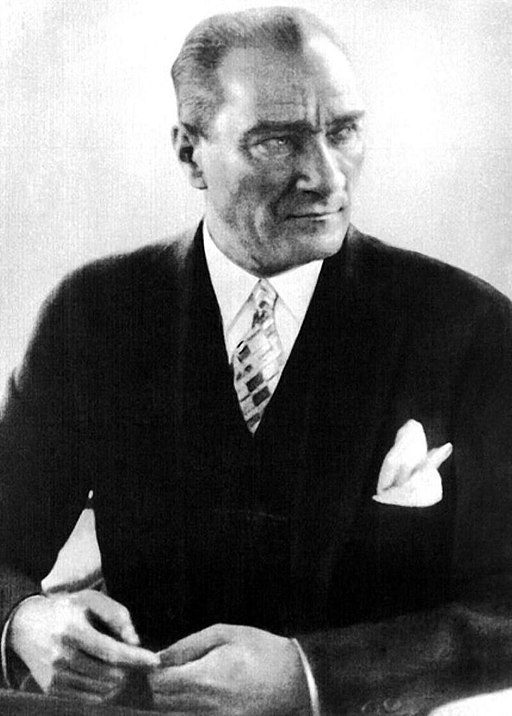
Mustafa Kemal. Unknown author. Wikimedia Commons
A professional Turkish soldier who predicted that Germany would lose a major conflict, Kemal was nonetheless given a command when the Ottoman Empire joined Germany in the war, albeit after a period of waiting. He came to prominence for his role in securing the Ottoman-Turkish victory at the Battle of Gallipoli (1915) during World War I. Following the defeat and dissolution of the Ottoman Empire, he led the Turkish National Movement, which resisted mainland Turkey’s partition among the victorious Allied powers and is said to be the father of modern Turkey.
16. Field Marshal Horatio Kitchener
A famed imperial commander, Kitchener was appointed British War Minister in 1914 more for his reputation than his ability to organize. Quite an ambitious leader, he almost immediately brought realism to the cabinet, claiming the war would last years and require as large an army as Britain could manage. He used his fame to recruit two million volunteers through a campaign that featured his face, and kept French and the BEF in the war.
However, he was a failure in other aspects, such as securing Britain’s turn to total war or providing a coherent organizational structure. Slowly sidelined during 1915, Kitchener’s public reputation was so great he couldn’t be fired, but he drowned in 1916 when his ship, traveling to Russia, was sunk.
17. Lenin
Following Russia’s failed Revolution of 1905, he campaigned for the First World War to be transformed into a Europe-wide proletarian revolution, which, as a Marxist, he believed would cause the overthrow of capitalism and its replacement with socialism.
Although by 1915 his opposition to the war meant that he was only the leader of a small socialist faction, by the end of 1917 his continued call for peace, bread, and land had helped him take charge of a coup d’etat to lead Russia. It was he who led the Russian revolution of 1917. He is credited for entering into talks with Germany which turned into the Brest-Litovsk treaty.
18. British Prime Minister Lloyd-George
Lloyd-George’s political reputation in the years before the First World War was one of a vocal anti-war liberal reformer. Once conflict broke out in 1914, he read the public mood and was instrumental in getting the Liberals to support intervention. As Minister for Munitions in 1915 in the new administration, he made one of the most notable contributions to the victory of the Allies. He intervened to improve production, throwing open the industrial workplace to women and competition. He later became the Prime Minister.
19. Raymond Poincaré

Raymond Poincaré. Author Harris & Ewing. Wikimedia Commons
He served his country as president during World War I (1914-18) and later as prime minister during a series of financial crises. Before the war, he worked to strengthen ties with Great Britain and Russia against the growing threat of Germany. As President of France from 1913, he believed war with Germany was inevitable and prepared France appropriately: improve the alliance with Russia and Britain, and expand conscription to create an army equal to Germany. During the conflict, he tried to keep the union of government factions together but lost power to the military, and after the chaos of 1917 was forced to invite an old rival, Clemenceau, into power as Prime Minister.
20. Gavrilo Princip
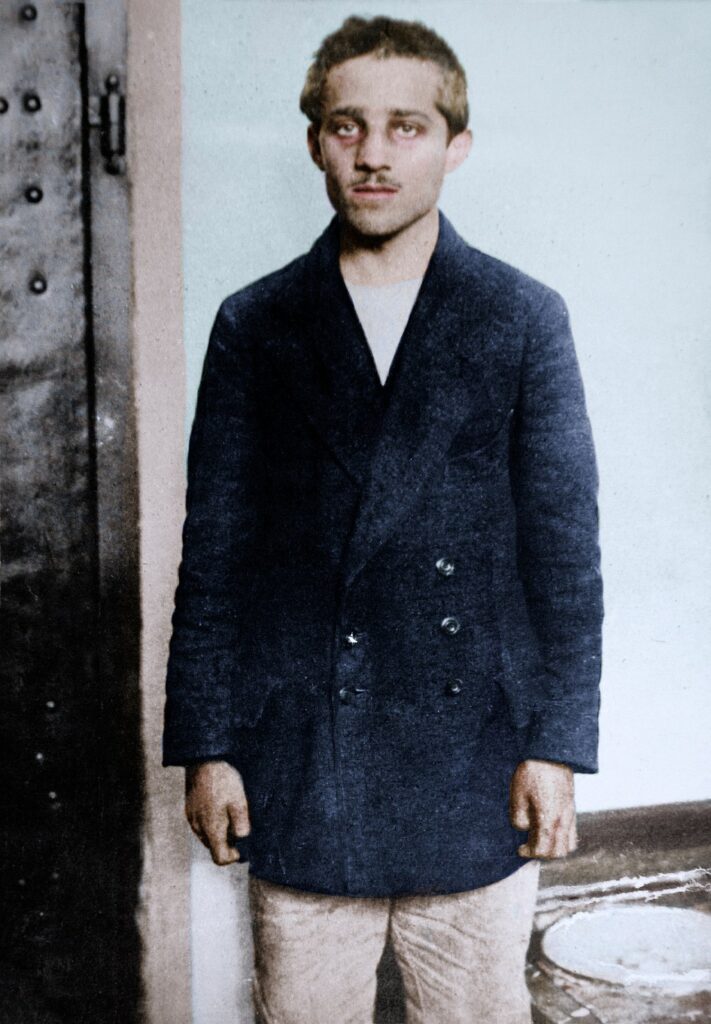
Gavrilo Princip in his prison cell. Author Cassowary Colorizations. Wikimedia Commons
The Bosnia-Serbian youth is famous for being the one who pulled the trigger that killed Archduke Franz Ferdinand, the heir apparent to the Austrian throne, and his wife Sophie as their motorcade passed by on the streets of Sarajevo. Princip was promptly arrested and imprisoned, where he would die of tuberculosis in 1918.
Planning a trip to Paris ? Get ready !
These are Amazon’s best-selling travel products that you may need for coming to Paris.
Bookstore
- The best travel book : Rick Steves – Paris 2023 – Learn more here
- Fodor’s Paris 2024 – Learn more here
Travel Gear
- Venture Pal Lightweight Backpack – Learn more here
- Samsonite Winfield 2 28″ Luggage – Learn more here
- Swig Savvy’s Stainless Steel Insulated Water Bottle – Learn more here
Check Amazon’s best-seller list for the most popular travel accessories. We sometimes read this list just to find out what new travel products people are buying.



